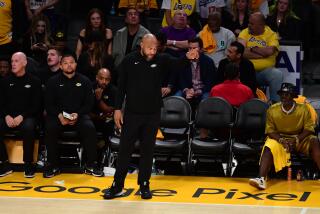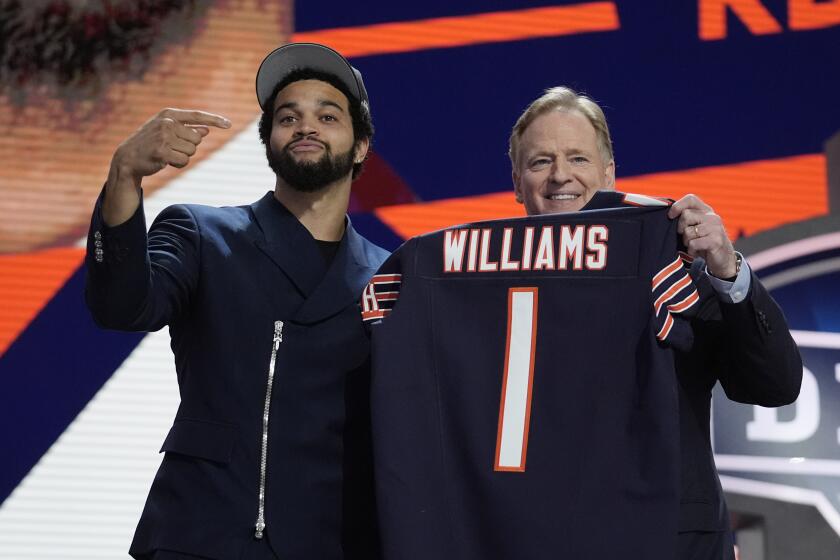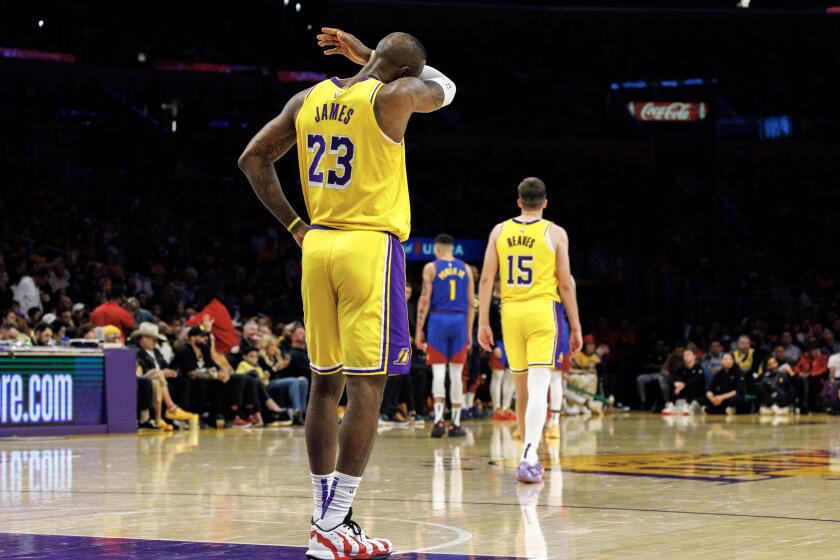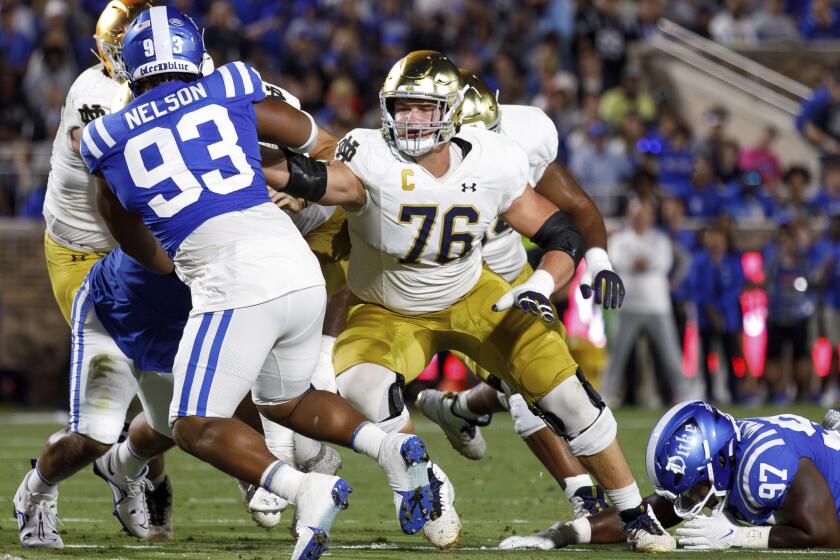Ivy League Football Coaches Adjust to Freshmen Eligibility
Yale University football coach Carm Cozza always has been reluctant to play sophomores. Unless you were the second coming of Walter Camp, Albie Booth, Larry Kelley, Clint Frank or Calvin Hill, you waited your turn behind more established players.
Now, in his 31st year in New Haven, Conn., 29th as head coach, Cozza will be using freshmen.
Freshmen? On the varsity? We’re talking blasphemy.
Well, maybe in the past, but Cozza has to accept that freshmen are eligible to play on the varsity for the first time since the Ivy League was formally founded in 1956.
Cozza and Joe Restic, entering his 23rd and final season at Harvard University, opposed freshman eligibility, passed by the Council of Ivy Group Presidents in December 1991 after two years of research and discussion. The change was made to save money and better integrate freshmen into existing football programs. Ivy freshmen had been eligible for varsity teams in all other sports except men’s crew.
But Cozza, Restic and their schools didn’t think freshmen would be able to adjust to the rigors of being an Ivy League student athlete. Cozza has mellowed a bit, but Restic and Harvard remain bastions of Ivy League ideals.
Freshman football will continue in Cambridge, Mass., as first-year players won’t be allowed to play on the varsity. However, about 35 Ivy freshmen are expected to play at least part time in varsity games, with one, Brown University halfback Marquis Jessie, a starter. The rest will be members of junior varsity teams -- and the freshman team at Harvard.
“I think we stated how we feel by staying with the freshman program,” Restic said. “We’re concerned about the academic side -- as I’m sure everyone else in the league is -- and the new rule reducing the number of recruits (from 50 to 35 a season) forced the issue.
“We’re most concerned with playing time down the road, starting with a (six-game) freshman schedule. If you don’t have the combination (of varsity and JV teams), I think you’re going to have some attrition. Maybe what you feel you’ve gained initially you’re going to lose in the long run. I know it will take its toll.”
But Harvard will be the exception for the Class of ’97 as teams begin to deal with freshman eligibility and reduction in the number of recruits. Expansion of spring practice from one day to 12 days will benefit everyone, but that won’t become a factor until 1994.
Ivy coaches, including Cozza and Restic, say freshman eligibility also will improve the quality of play, especially at schools such as Brown and Columbia University, which have had numbers problems.
But they all say it will take time to evaluate the long-range effects of the new rule.
“I’m still against it because I don’t like the pressure the freshmen may face playing on the varsity,” said Cozza, who may use 6-foot-8 freshmen Saturday in the opener against Brown at Yale Bowl. “But the one good thing is freshmen will be better as sophomores because of the experience of working with upperclassmen and being coached by full-time coaches.”
Freshman defensive tackle Bob Selzer has already sensed that.
“I heard we may miss the camaraderie of being together as freshmen,” Selzer said, “but I really think it has been an advantage being with the varsity, on and off the field. I know I’ve already learned more than I would have if I wasn’t with the upperclassmen.”
Still, Cozza has a wait-and-see attitude.
“I want to see what effects it has when the freshmen are juniors,” Cozza said. “It’s the numbers situation that concerns me. This year everyone is happy because we all have our varsity, plus the freshmen. But if you keep cutting the numbers -- you get down to around 100 -- I want to see how happy everyone is.
“We’re OK for a couple years, but when the number gets down, you’re going to have to rely on those 35 freshmen. If you could hand-pick the 35, or you’re in a scholarship program, you’re OK. But without scholarships you lose big people and kids with genuine speed, unless you get lucky like we did with (injured running back) Keith Price or Princeton did with (running back) Keith Elias.”
There are also concerns about success in the classroom. But most coaches again say freshmen benefit from being with the varsity.
“The jury is obviously out on how freshmen are going to make that transition from high school academics to college academics the way it is in this league,” Cornell University coach Jim Hofher said. “But being with the fellows every day the way we are as varsity coaches is probably going to help that transition, as opposed to when we didn’t get to see them until well after that freshman fall was completed.”
The closeness with upperclassmen could enhance player development, which might mean more victories.
“I think it’s an excellent rule,” said University of Pennsylvania
Coach Al Bagnoli, who expects to use as many as 10 freshmen. “The experience and quality of coaching the kids will get will be a vast improvement.”
Brown, 0-10 last season, will play four or five freshmen, including starting Jessie.
“I think freshman eligibility has been terrific,” Brown coach Mickey Kwiatkowski said. “It gives us quality and a jump-start for what we had to do.”
It’s similar for Ray Tellier, 6-34 in four years as coach at Columbia.
“It has been a good experience for us, especially from a practice standpoint of being able to do the things we want with the proper numbers,” said Tellier, a former quarterback at and the University of Connecticut. “From a football standpoint, the freshmen are much farther along than they’ve ever been.”
Other coaches also have noticed a rapid maturation.
“The things that really surprised me about the freshmen were their conditioning level at the start of practice and being tremendously unintimidated for the kind of practices we’ve had,” Hofher said.
“There’s no question having the freshmen will hasten their development as football players,” Dartmouth University coach John Lyons said. “In a lot of cases, we’ve found our freshmen aren’t that far from the sophomores, and hopefully they’ll be able to handle the academic world.”
Princeton University coach Steve Tosches, who will play five freshmen, said, “I’ve been very happy with the competitiveness of the freshmen.”
Many of the newcomers have flourished despite missing part of the preseason for orientation. Freshmen at Yale practiced the first four days, then weren’t allowed to be with the team for four days. First-year players at Penn and Dartmouth won’t play Saturday because of orientation.
Tellier, who will use 10 freshmen, said that when the coaches began discussing freshman eligibility, they unanimously favored keeping freshman football. But the reduction in the number of recruits altered the opinion of most.
“The hand was pretty much played for the coaches because it was very difficult to maintain a separate freshman program with 35 people,” Tellier said. “If that was going to be the case, they almost had to be eligible to field varsity and junior varsity football teams.
“We felt that if that’s the way it was going to happen -- and it was done at a much higher (administrative) level -- that we would just have to do the best job we could to make sure the freshmen became acclimated academically and socially.
“I think we’re all pleased with the football part, but I think we’re a year or couple of years away from evaluating the whole situation.”
More to Read
Get our high school sports newsletter
Prep Rally is devoted to the SoCal high school sports experience, bringing you scores, stories and a behind-the-scenes look at what makes prep sports so popular.
You may occasionally receive promotional content from the Los Angeles Times.






